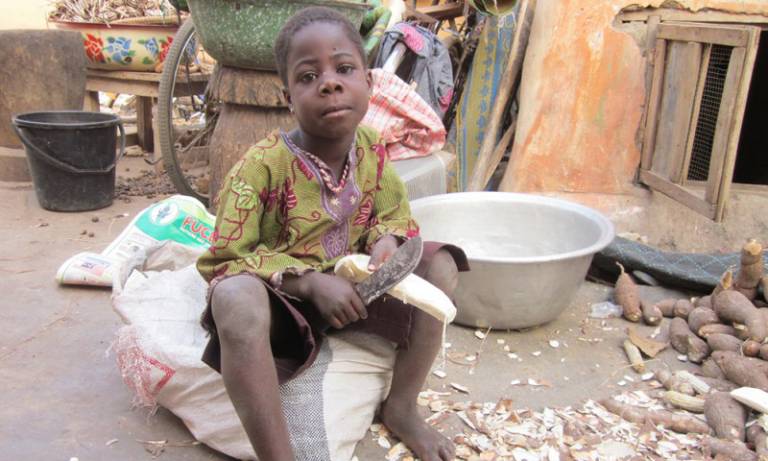Young girls and social norms - challenges to promoting well-being and equality
13 February 2017
DPU PhD Candidate Fanny Froehlich was part of a research team at Plan international UK working on a study that looks at how social norms impact the lives of 142 different girls

“I washed the dishes, swept the house yard, drew water, bought the porridge we took together in the morning and then I got ready … I work more at home and I amuse myself less than the boys.” Hadidjatou, aged 10, Togo
One of the aims within the Social Development Practice lens at DPU is to identify and address challenges for promoting well-being and equitable citizenship in a setting of social diversity. Many young girls in the Global South and Global North experience a plethora of challenges that make it difficult for them to achieve such a status of equality or well-being – many of these challenges are linked to social norms and how they impact the lives of young girls both in terms of possibilities and limitations.
In her role as a DPU PhD student focussing on gender programming conducted by international NGOs and local initiatives in Ghana, Fanny Froehlich was part of a research team at Plan international UK working on a study that looks at how social norms impact the lives of 142 different girls in nine different countries across Sub-Saharan Africa, Latin America and Asia. The study sets out to capture “the impact on women’s and girls’ capabilities, agency and choice when resources are scare [and] how they adapt”. It started 10 years ago, when the study cohort girls were born, and is envisioned to continue until the girls are 18 years old; families taking part in the study mostly live in poor rural communities.
Being in the second year of her PhD research and about to embark on her fieldwork, working on the longitudinal cohort study ‘Real Choices, Real Lives’ was a valuable insight in the ways some NGOs generate a knowledge base that serves as evidence for both project design and advocacy work. The research team Fanny was part of developed an analysis of rich and extensive qualitative data that led to certain findings about the impact of social norms in areas such as limitations of movement, physical integrity, economic independence, decision-making power and livelihoods. The way such data is disseminated especially in terms of strategic choices what to leave in and what to leave out needs to continue to be constantly scrutinized.
If you are interested to take a look at the 10-year report, you can follow this link: https://plan-uk.org/act-for-girls/about-because-i-am-a-girl/the-first-10-years-9-girls-lives-from-around-the-world
Image creadit: Plan international UK
 Close
Close

